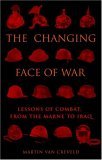Ayaan Hirsi Ali’s very vocal dissidence from Islam has served to polarize public opinion, to say the least, especially in Europe. While most people have a hard time arguing with her views when confronted with them, committed multiculturalists cannot help attacking her, or at least trying to put her credibility into doubt among audiences who might be receptive to her views.
signandsight has compiled the contributions to an especially heated debate on multiculturalism in general and Ayaan Hirsi Ali in particular. It started when French philosopher Pascal Bruckner defended Ali against attacks by Ian Burama, author of Murder in Amsterdam, as well as Timothy Garton Ash in his review of the book (only available to subscribers). Beyond addressing their specific points on Ali, he went on to attack misguided claims of moral equivalence between ‘Islamist fundamentalism and Enlightenment fundamentalism’ and he also compared multiculturalism with South African apartheid policies. While Ash, Burama and some others couldn’t leave that unanswered, and were in turn criticized by other participants.
You can find the whole debate here: The Multicultural Issue.
It should also be noted that the people at signandsight have their own biases, for their introduction to the debate begins with the sentence “Who should the West support: moderate Islamists like Tariq Ramadan, or Islamic dissidents like Ayaan Hirsi Ali?” Some people who know what they are talking about aren’t agreeing that Tariq Ramadan can indeed be called a moderate (of course, the really bad news here might be that Ramadan really *is* a moderate, as Islamists go). They also let Ash and Burama have the last word, with “Timothy Garton Ash and Ian Buruma set[ting] Pascal Bruckner straight on a few last points.”
Then again, this kind of skewed stance might be necessary for there being any debate at all, for a strictly rational and impartial consideration of the issue would quickly lead to the conclusion that there really is nothing that could possibly justify Islamism as well as multiculturalism (you could argue that this is a kind of bias in itself, but I happen to hold the axiomatic view that our values are simply superior to theirs, and better them than us, should it ever come to that).
